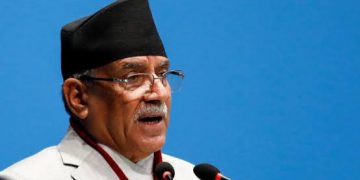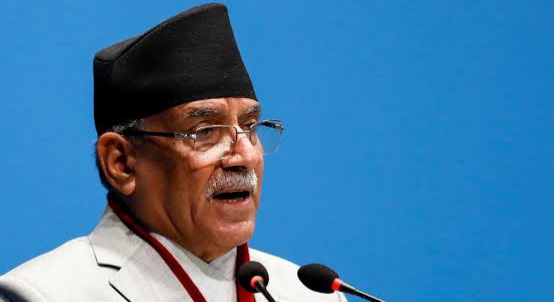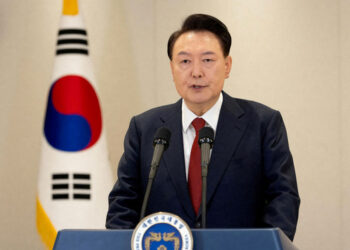By Oyintari Ben
Following Prime Minister Pushpa Kamal Dahal’s declaration that he intended to endorse a presidential candidate from an opposition party, the deputy prime minister of Nepal and three other ministers have resigned from the government coalition.
Together with the ministers for urban development and legal issues, Rajendra Lingden, the deputy premier who was also the minister for energy, water resources, and irrigation, resigned on Saturday in protest. A junior minister who was Lingden’s assistant also left.
According to Lingden, it would not be “appropriate for them to stay in the government” because “the coalition under which we joined the government is no longer intact.”
Political analysts claimed that because the government still had a majority in parliament, the action did not indicate that the new administration of Dahal, a former Maoist guerrilla better known by his nom de guerre Prachanda, was in immediate danger. Yet, they asserted that the commotion might result in forming a new coalition.
In the presidential election scheduled for next month, Dahal announced on Friday that he would choose Ram Chandra Paudel of the opposition Nepali Congress party rather than the nominee of his coalition partner, the Communist Unified Marxist Leninist (UML) party. Despite being a former ally of Dahal’s Maoist Centre party, the Nepali Congress party, he did not justify his choice.
The PM’s office verified the four ministers’ resignations, although it was unclear whether their resignations had been accepted.
No party received a majority in the November parliamentary elections, which resulted in the formation of a coalition government led by Dahal.
Since his Maoist group joined a peace process supported by the United Nations and mainstream politics in 2006, which ended a decade-long armed rebellion that claimed the lives of more than 17,000 people, he has held the position of power three times.
In the 2008 elections, the Maoists won the most seats in the legislature, and Dahal was appointed prime minister. He left, nonetheless, a year later due to disagreements with the president.
After ending its 239-year monarchy and converting to a republic in 2008, Nepal, sandwiched between China and India, has gone through 11 different governments. Investors are frightened by the political unrest, which has slowed the expansion of the $40 billion economy.




































